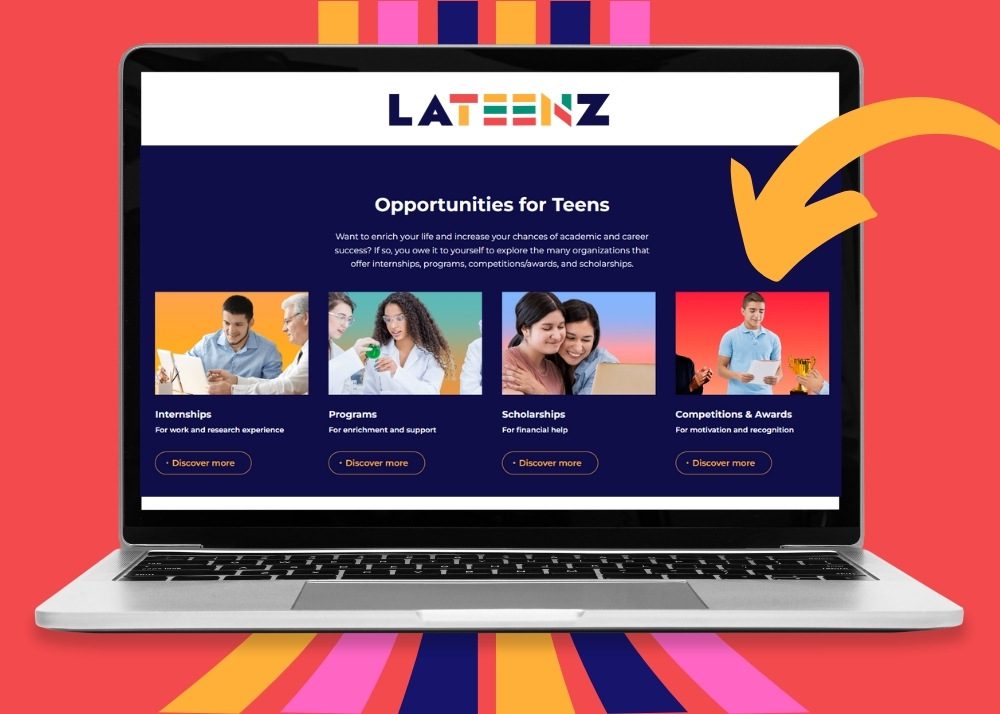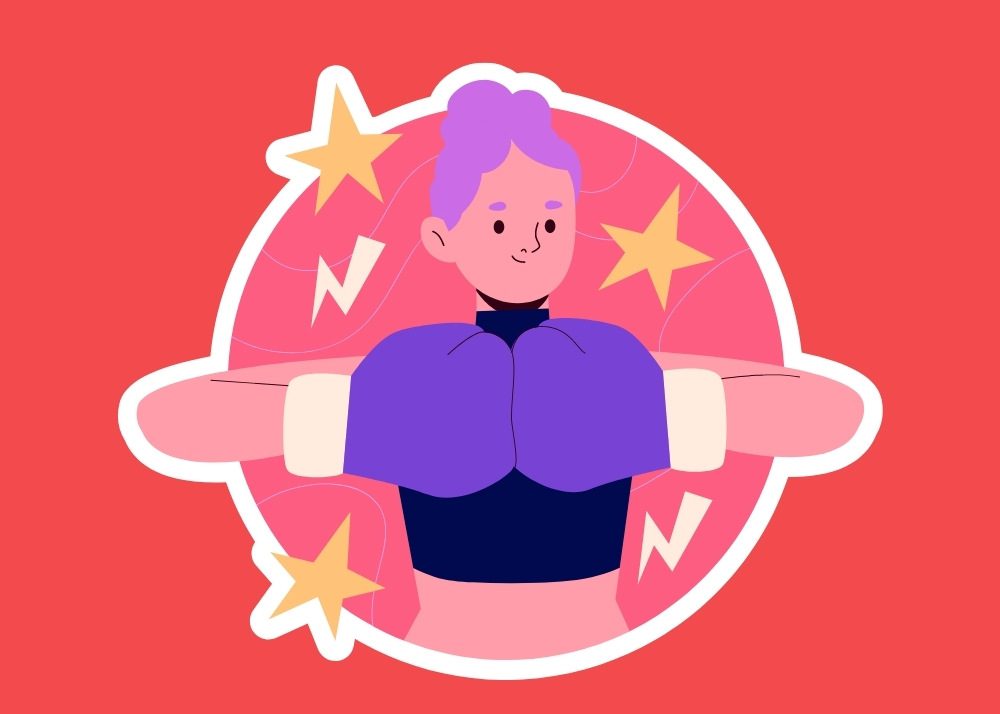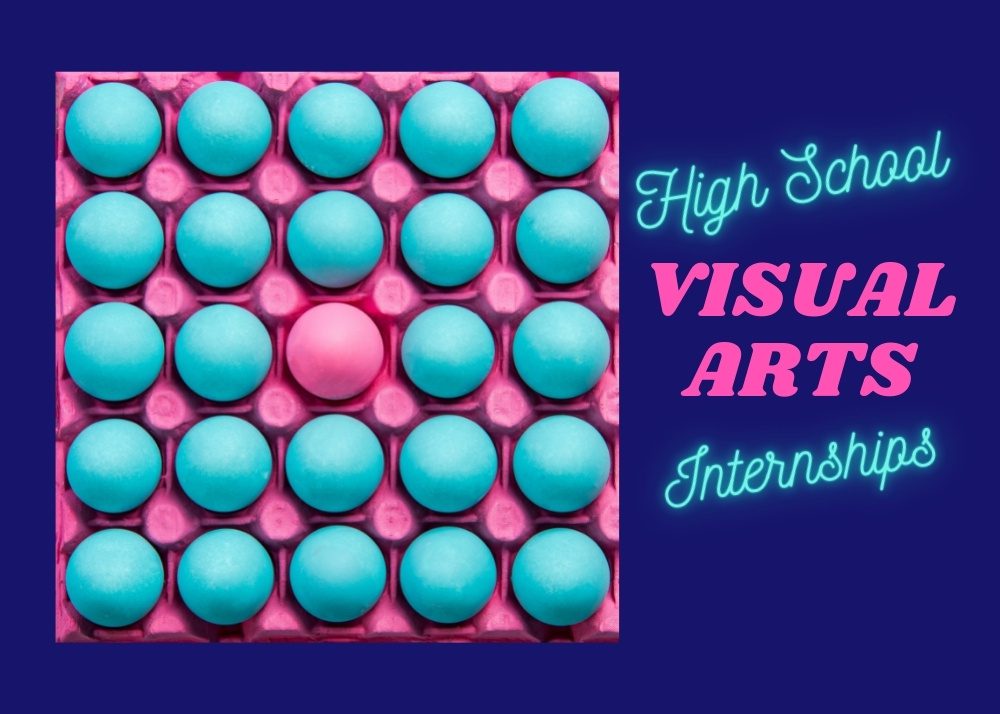Ultimate Guide to Middle and High School Competitions
What you don’t know about middle and high school competitions may surprise you. Read on, and don’t miss out!
Beyond Sports
When most people think of competitions for middle and high school students, the first thing that comes to mind is usually a sports tournament. After all, football, soccer, volleyball, tennis, and other sports are a popular and very visible part of middle and high school life.
There’s a whole world of competitions and award contests beyond athletics, however, that you should know about. These knowledge and skill-based competitions exist in a huge range of different areas, including traditional academics, the arts, music, science, technology, leadership, passion (seriously!), and many more.
If you’re a middle or high school student, we highly encourage you participate in a knowledge or skill-based competition, especially if it is a “WOW Factor Competition” (as we explain below). These competitions can help you showcase your talents, get better at a skill you already have, or learn something completely new! Also, did we mention that many of them offer awesome prizes and look great on college applications and resumes?
How Lateenz Can Help You Find the Best Middle and High School Competitions and Awards
Students at the top middle and high schools in the U.S. typically have experienced counselors and savvy teachers – and in some cases hired consultants – who understand the benefits of competitions and award contests and encourage their students to participate. These counselors, teachers, and consultants also know about W.O.W. Factor Competitions for students of different skill levels and interests and can guide them to a good match. Unfortunately, if you don’t attend one of these schools, you probably don’t know just how many interesting and fun competitions exist, why they are important, or how to find them. And, even if you do know, it can take a lot of research (think hours of internet searches) to find a good fit completely on your own.
That’s why Lateenz has put together a huge, searchable list of the best student competitions on the internet. We’ve also made it easy and free for everyone to use — regardless of race, ethnicity, gender, where you go to school, or how much money your family has. What’s more, we make an effort to find competitions and awards that offer outreach to (make a special effort to include) Hispanic or Latino/x students who, as a group, traditionally have been underrepresented in most types of competitions. This outreach also often includes students who identify as Black, female, economically disadvantaged/lower income, first-generation Americans, or who will be the first in their families to go to college.

We encourage you to check out the Lateenz our database of middle and high school competitions and awards and use our search engine to help you explore it. To make the most of our database, however, it helps if you are familiar with all the ins and outs of middle and high school competitions and awards before you start searching. So, keep reading to find out everything you ever wanted to know — and maybe some things you didn’t even know to ask!
Competitions and Awards Are for Everyone – Not Just the Super Talented
Right off the bat, we want to address the common misconception (a belief that isn’t true) that you have to be a freakishly talented student to participate in (much less win) a competition or award contest. It’s true that some do require an exceptional level knowledge or talent in a particular area. (And if that describes you, bravo! You definitely need to compete!) But there are also many competitions where other factors – like being creative, determined, or willing to learn – are more important. There are even competitions where you learn the relevant skill as you participate.
Benefits of Competitions
As we mentioned briefly above, there are many benefits to participating in a competition/award contest, including the chance to: win prizes; learn something new; take on a challenge and grow as a person; have fun; build relationships with other teens; develop a mentoring relationship with a teacher or other helpful adult; build your resume; and add an accomplishment to your college application. Let’s take a closer look:
Prizes
The most common types of prizes are:
-
- recognition – you get a trophy, ribbon, certificate, or some other evidence that you won, plus “bragging rights” and the chance to shine a bit (just don’t let it go to your head!).
- cash/scholarship – you either get cash to use in any way you like, or you may have to use it for a particular purpose (such as your education or for a charity or project you worked on in connection with the competition).
- publication/exposure – your work is published, displayed, or given another type of media platform.
- education/mentoring – the sponsor arranges for you to get additional education, mentoring, or training – all with the goal of helping you continue to improve your skills or to support a promising idea or project that you’re developing.
- combination – you receive a combination of two or more of the above “prizes.”
Learn Something New
Competitions are a great way to learn something new. They can suggest areas that might be fun to explore or help you move forward in an area you’re already interested in. Maybe you’ve been wanting to try robotics (just to pick an example), but you didn’t know where to start or were intimidated by the thought of doing it on your own. A structured robotics (or other) competition may be just what you need. Structured competitions lay out the steps that you need to follow, the supplies that you need, and the goal that you need to achieve. They also can help you put together a team and recruit a teacher or other sponsor.
Improve an Existing Skill
Maybe you’re already good at something, but you need a little extra motivation or help to take your skills to the next level. The excitement of a competing and the possibility of a prize can give you an incentive to keep growing.
Challenge Yourself
Competing can help prove to yourself that you are capable of doing things outside your comfort zone. And learning that you can try hard things will boost your confidence — “If I can do this, I can also do [insert some future challenge here].”
Have Fun
Teens who have participated in a competition or award contest often say that it’s one of the most fun things they’ve done. Working as a group with other kids or taking on a new project can be a healthy focus and a life raft in the rough seas of middle/high school life.
Meet Other Teens With Similar Interests
Competitions are a great way to make friends with other teens who are interested in the same things you are. Even if you already have great friends, there’s something special about working on a common goal with other teens.
Build Relationships With Teachers and Other Mentors
And speaking of relationships, competitions and contests are a great way to work with and learn from teachers and other adults. Not only can these mentors help you develop your skills, but they can get to know you in a meaningful way that might not otherwise be possible in a school setting. And someone who has seen your dedication and ability is also someone who could give you good guidance in other areas of life. They also may be willing to provide a meaningful recommendation for you when it comes time to apply to college or look for a job.
Get Access to Other Opportunities
You might think of this benefit as the “snowball effect.” Like a snowball that gets bigger as it rolls along the ground and more snow sticks to it, competing can help you attract resources, connections, and other related opportunities to help you grow as a person. For example, a competition mentor might introduce you to someone who can offer you an internship, or your participation might boost your application to a summer program. Pretty soon, you’re building a snowman!
Add the “WOW Factor” to Your College Applications and Resume
Ranking (and, in many cases, even just participating) in a competition will enhance your resume and college applications. This is especially true, though, for “WOW Factor Competitions.”
A WOW Factor Competition or award is one that:
-
- is Well-Known and prestigious (so college admissions offices are familiar with it). Examples of this include: the Continental Mathematics League, the Davidson Institute: Fellows Scholarship, the Scholastic Art and Writing Awards, and the Gloria Barron Prize for Young Heroes.
-
- OR
-
- requires Obvious Effort and a substantial investment of time to participate. Any competition that clearly requires a significant commitment of time and effort will show you have determination and an ability to focus.
-
- OR
-
- Works Well With or complements a skill or interest that you demonstrate in other ways on your application or resume. So, for example, you participate in a competition that looks for a solution to an environmental problem, and you also volunteer at an organization that is dedicated stopping climate change, and/or you are in a club at school that focuses on recycling. These extracurriculars (things you do outside of school) work together to show that you are serious about helping the environment.
Notice that we used the word “OR” in between each of the bullet points above. That’s because participating in a competition that hits even one of these three targets is going to help you stand out. Obviously, it would be amazing for your resume or college application if you could hit all three, but even one will be significant. Why? Because the top three things colleges and employers look for are talent, dedication, and passion — in other words, what each of the WOW Factors, respectively, demonstrate!
Caveat (Warning): A Bit of Friendly Advice
Resumes and college applications are important, and you need to think about them. But, if they are your only reason for participating in a competition or awards contest, chances are you’re not going to enjoy it, or you may enjoy it less than you would if, say, you’re also interested in growth and challenge. And if you don’t feel a sense of fun or purpose, that may affect how well you do. The good news is that, given the huge variety of competitions that are available today, there’s a very good chance that you can find a WOW Factor Competition that is fun and challenging for you.

The Huge Variety of Middle and High School Competitions
If you’ve never looked into the world of middle and high school competitions and awards, we guarantee you’re going to be surprised by number that exist and the very wide range of areas they cover. Here’s a list of some of the most common competition/award areas, along with an example of each type that almost any student can try (meaning, you don’t have to have exceptional skills to participate):
- Americana – Veterans of Foreign Wars Voice of Democracy Scholarship Contest (record a 3 – 5 minute audio essay on a democratic or patriotic theme)
- Arts/Applied Arts – Congressional Art Competition (submit a work of art in one of numerous categories)
- Business – NFTE World Series of Innovation (help change the world with entrepreneurial thinking)
- Community Engagement/Service – Games for Change (learn to design computer games with a social impact theme)
- Dance – Bow Seat Ocean Awareness Contest (submit a work of art – which can include a dance – on a marine environment theme)
- Environment/Conservation – Composting Council Research & Education Foundation: ICWA Poster Contest (design a poster that promotes composting)
- Fashion — College for Creative Studies: Fashion Design Competition (submit a mood board and a one-page statement that summarizes your vision for the future of fashion).
- Health and Safety – American Academy of Sleep Medicine: High School Video Contest (submit a 15 – 90 second video to help other teens understand the connection between sleep and health)
- Heritage – Optimum/Suddenlink Hispanic Heritage Essay Contest (submit an essay of 500 words on a theme related to Hispanic heritage)
- Humanities and Social Sciences
- Economics – High School Fed Challenge (research an important economic theme as a team – no previous knowledge of economics is required)
- History – Lowell Milken Center for Unsung Heroes: ArtEffect Project (create a visual arts project about an “Unsung Hero” whose action made a profound and positive impact on history)
- Philosophy – John Locke Institute Global Essay Competition (write an essay answering a cool, philosophical question like, “If you could travel by time machine for your next holiday, which time and place would you visit?”)
- Information Technology – Technovation Girls Challenge (learn to create an app that solves a problem)
- Language – Scripps National Spelling Bee (spelling contests at the local and national level)
- Law – participate in mock trials or write a law-related essay like the Harvard Undergraduate Law Review- Fall Essay Contest
- Mathematics – Breakthrough Junior Challenge (create a 30-second video that explains a mathematical or scientific principle)
- Music –Interlochen Review (submit an original song)
- Passion – Taco Bell Foundation: Live Más Scholarship (create a 2-minute video about your passion in life)
- Problem Solving – Future Problem Solving International (learn strategies for solving real world issues)
- Public Speaking – American Legion Oratorical Contest (prepare and deliver a short speech on an aspect of the U.S. Constitution)
- Media All American High School Film Festival (create a work of between 1 – 20 minutes in one of the following media: film, podcast, vlog, or broadcast journalism)
- Sciences
- Psychology — American Psychological Association: TOPPS Competition for High School Psychology Students (write an essay that discusses psychology’s role in addressing societal problems)
- Rocketry — American Rocketry Challenge (learn to design, build, and launch model rockets as part of a team)
- Genomics — Genome Medical: Force for Good Essay Contest (an essay contest for underrepresented students on genetics or genomics)
- Engineering — Engineer Girl Writing Contest (write about engineering and its impact on our world)
- Biology/Biotechnology — BioMimicry Institute: Youth Design Challenge (come up with an idea to solve a social or environmental issue based on the way nature solves a similar issue)
- Chemistry — Chemical Education Foundation: You Be the Chemist Challenge (learn chemistry principles with a team and answer questions)
- Physics — American Association of Physics Teachers: APT High School Physics Photo Contest (take a photo that explains a physics concept and describe it)
- Theater – Illinois College of Fine & Applied Arts: Theater Competition (present a monologue of up to 2 minutes without props or staging)
- Writing – competitions for journalism, playwriting, fiction, non-fiction, essay, poetry and slam poetry performance like the Poetry Out Loud Competition
Compete Outside the Box
As you can see from the above examples, many competitions are accessible; they aren’t just limited to pencil and paper testing (or the digital equivalent) of how well you’re doing in school subjects. While there are certainly some competitions like that (think of a physics bowl or other “bowl”-type event), many competitions are less focused on “straight A” classroom skills in favor of quirky or creative thinking, dedication to a cause, willingness to solve a problem, leadership, or teamwork.

Do You Have to Pay to Enter a Competition?
Most competitions will not require you to pay to enter. In the case of a competition that requires a lot of effort and resources to coordinate, host, or judge, you may be asked to pay a small fee to cover the sponsor’s costs. However, if you are asked to pay a significant amount of money to participate in a competition, you should ask questions and do some research. Look for more information about the sponsor and see if you can find reviews from past student participants.
Do You Need a Sponsor?
Some competitions require an adult to coordinate participation or serve as a teacher/mentor. This is more common for team competitions. But there are plenty of competitions you can enter on your own.
What If You Don’t Win?
Winning isn’t everything. With the exception of some kinds of prizes, none of the benefits that we describe above depend on you winning. This is true even in the case of resumes and college applications. If you participated seriously in a competition and worked hard, you can still list it in a college application or resume even if you didn’t win or place. Just describe the work you did, how many hours you worked on it, and what you learned.
You’ve Got Nothing to Lose
In the end, there’s really no downside to participating in a competition. Even if you don’t win, you’ll have gained a valuable experience or skill. So, check out the Lateenz database of Competitions and Awards in our Teen Resources section, and show the world — and yourself — what you’ve got!

To get the latest news on internships, programs, competitions, and scholarships for middle and high school students (many of which do outreach to Hispanic and Latino/x teens), be sure to follow us on Instagram and Twitter.
Related articles
-
 Student LifeUltimate Guide to High School InternshipsOctober 05
Student LifeUltimate Guide to High School InternshipsOctober 05 -
 Student Life45+ Exciting Environmental Science Internships for High School StudentsOctober 18
Student Life45+ Exciting Environmental Science Internships for High School StudentsOctober 18 -
 Student Life7 Great High School Internships in the Visual ArtsOctober 18
Student Life7 Great High School Internships in the Visual ArtsOctober 18 -
 Student LifeHispanic Scholarship Spotlight: The New Mexico Legislative Lottery ScholarshipOctober 21
Student LifeHispanic Scholarship Spotlight: The New Mexico Legislative Lottery ScholarshipOctober 21
Most popular
-
 Student Life35 Top Science Competitions for High School StudentsJanuary 31
Student Life35 Top Science Competitions for High School StudentsJanuary 31 -
 Info / InspirationVoto Para La Mujer Quarter is a Major “Change”!July 29
Info / InspirationVoto Para La Mujer Quarter is a Major “Change”!July 29 -
 Student Life35+ High School Internships in the Bay AreaJanuary 22
Student Life35+ High School Internships in the Bay AreaJanuary 22 -
 Student Life90+ Best Writing Competitions for High School StudentsApril 13
Student Life90+ Best Writing Competitions for High School StudentsApril 13 -
 CultureA Smashing Success: The Surprising History of the Piñata in Latino/x CultureSeptember 27
CultureA Smashing Success: The Surprising History of the Piñata in Latino/x CultureSeptember 27

